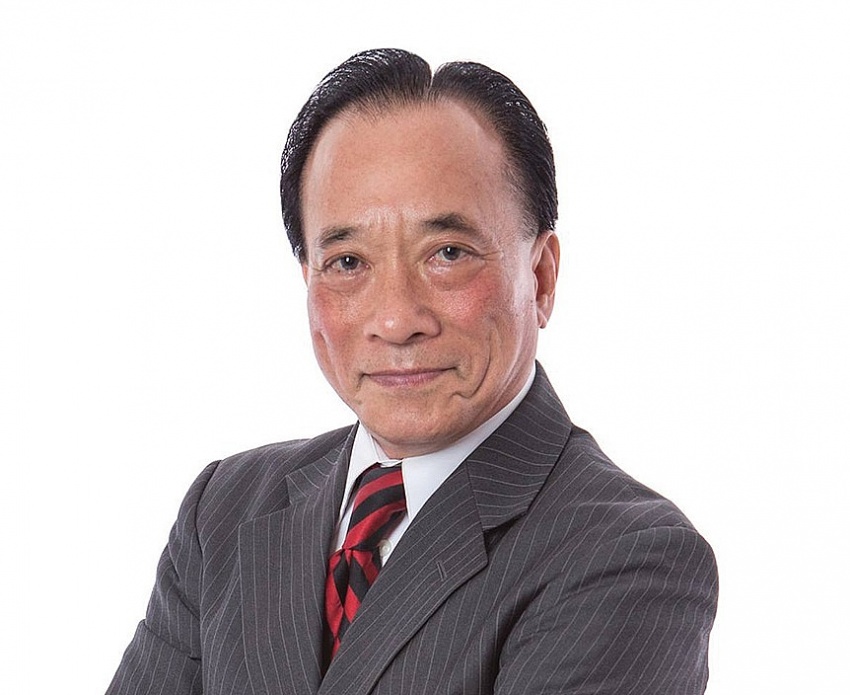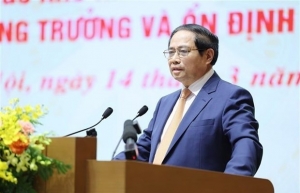More solid guarantees crucial for credit landscape
The banking sector’s credit eyed contraction in the first two months of this year, which was deemed normal by the authorised agency. What is your take on this?
 |
| Nguyen Tri Hieu, economist |
In my view, three reasons persist. Firstly, banks were heavy lenders in late months of 2023, whereas the economy marked a start in early months of 2024, resulted in modest credit demands.
Secondly, Vietnam’s export market was still in the doldrums. Statistics by the General Statistics Office (GSO) showed that in February the country’s total import and export value approximated $48.54 billion, down 25.8 per cent compared to January and 1.8 per cent lower compared to one year ago.
In the first two months of this year, Vietnam’s total import and export value, however, came to $113.9 billion, showing an 18.6 per cent jump on-year. Despite a hike compared to similar period last year, it proved lower compared to the average level in many years before.
Thirdly, low aggregate demand is instrumental to low credit demand. Low domestic demand plus low export demand led to a low pace of the economy, with feeble business activities. These all had resulted in credit contraction.
Generally, in these first two months the economy continued the stagnation from 2023, and at this point of time there emerges a point of concern that the number of businesses halting operation and going bust saw a sharp hike compared to 2023’s average level.
According to GSO figures, 63,000 businesses had withdrawn from the market during the period, up 22.5 per cent on-year, averaging nearly 31,500 businesses each month, which was doubled compared to the average level in whole 2023.
When firms halted operation or went bust, it means the economy was functioning very slowly. As such, in my view this credit contraction is a cause for concern as it is now mid-March.
When will credit resume growth momentum?
It might be in the second half of this year, leveraging the US Federal Reserve’s pivoting its monetary policy stance from tightening to loosening in months close to US presidential election.
The Fed still retains an inflation control policy, as its actual inflation rate is still about 1 per cent higher than the inflation target.
As usual during the years when a US presidential election takes place, often the administration would strive to contain inflation, aiming for beneficial election results. As such, the Fed would peg the interest rate at a high level which could affect the global economy, particularly Vietnam, as the US is one of Vietnam’s major export markets.
The greenback becoming more expensive would push up the exchange rate and influence other valued assets, such as causing the gold price to swell, influencing the gold price situation in Vietnam.
In addition, tightened monetary policy by the US administration has also adversely affected Vietnam’s export to the US.
Although the US economy has warmed up thanks to a low unemployment rate and high domestic demand, the Fed’s tightened policy stance and high inflation put a brake on borrowing requirements from the part of US businesses and residents, from there affecting import demand from Vietnam.
Hence, I expect Vietnam’s export has yet to eye a breakthrough in the first half of this year. Just after the Fed begins interest rate cuts from the second half at about 0.25 per cent, there would be more positive impacts on the global economy, leading to surging credit demand.
How can the current feeble total aggregate demand be bolstered?
In the current context, the motivation comes from accelerating public investment. From the outset of 2024, the government shows a strong commitment to push up disbursement of public investment sources.
In fact, the rate of disbursed public investment capital sources reached 8.7 per cent in the first two months of this year as announced by the Ministry of Finance. Compared to the prime minister’s assignment, the disbursement rate reached 9.13 per cent, higher compared to similar period last year. It needs further observations in the months to come.
However, to put Vietnam in a fast development orbit, public investment acceleration alone is not enough. Two other crucial factors to reviving the economy are exports and boosting domestic demand.
I expect the upcoming wage surge for the labourers from July would contribute to fuelling total aggregate demand, yet caution is necessary because wage hikes might create inflation.
Credit growth has yet to accelerate. Is lowering the lending rate the smart option to fuel growth?
We have focused too much on interest rate reduction in the last two years, but in fact the interest rate is not a tool or an arrow set to multi targets.
Lower interest rates have brought positive impacts. However, we should acknowledge that the economy saw a slow pace of recovery last year, albeit in the low interest rate environment.
Other tools need to be considered, such as increasing the money supply and putting more money into circulation. This is a bottleneck of the economy that needs to be removed in the context businesses are facing multiple hardships. Pumping money in, however, also has a downside as the economy and banks would face myriad risks.
To solve this problem, we might resort to the vehicle of using credit guarantee funds, promoting public investment, and expanding import-export markets. There exists a paradox in the current context that when businesses are weak and need support from banks, that is also the time when banks let go because they are afraid of credit risks.
So, in order for banks to lend without fear of risk, setting credit guarantee funds appears to be the most suitable solution that the government needs to consider as these funds shall guarantee banks the amount of money they lent to businesses in cases businesses incur default.
 | PM urges enhancing credit access, absorption to fuel growth Prime Minister Pham Minh Chinh on March 14 chaired a conference launching this year’s monetary policy-related tasks to tackle production and business obstacles, facilitate growth, and maintain macro-economic stability. |
 | PM urges further rate cuts, improved credit access to remove obstacles, promote growth Prime Minister Phạm Minh Chính chairs the meeting to implement monetary policy management tasks in 2024, which focuses on removing difficulties for production and business to promote growth and ensure macroeconomic stability. |
What the stars mean:
★ Poor ★ ★ Promising ★★★ Good ★★★★ Very good ★★★★★ Exceptional
Related Contents
Latest News
More News
- Private capital funds as cornerstone of IFC plans (February 20, 2026 | 14:38)
- Priorities for building credibility and momentum within Vietnamese IFCs (February 20, 2026 | 14:29)
- How Hong Kong can bridge critical financial centre gaps (February 20, 2026 | 14:22)
- All global experiences useful for Vietnam’s international financial hub (February 20, 2026 | 14:16)
- Raised ties reaffirm strategic trust (February 20, 2026 | 14:06)
- Sustained growth can translate into income gains (February 19, 2026 | 18:55)
- The vision to maintain a stable monetary policy (February 19, 2026 | 08:50)
- Banking sector faces data governance hurdles in AI transition (February 19, 2026 | 08:00)
- AI leading to shift in banking roles (February 18, 2026 | 19:54)
- Digital banking enters season of transformation (February 16, 2026 | 09:00)

 Tag:
Tag:



















 Mobile Version
Mobile Version